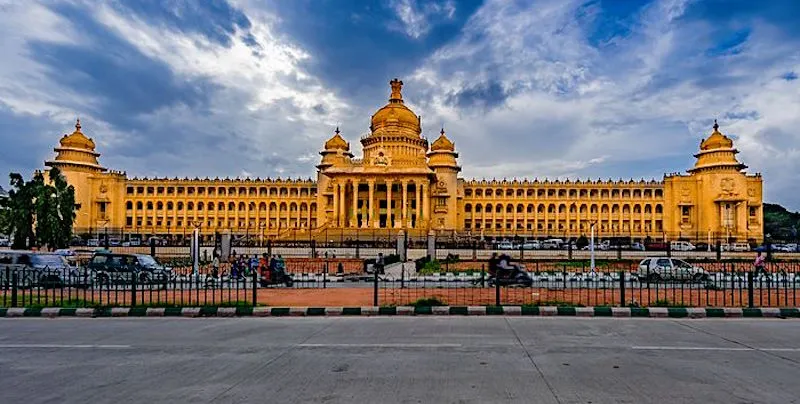When 5,000 convicts built the Vidhana Soudha for Bengaluru in 4 years
This iconic structure has come to represent the identity of Bengaluru and Karnataka. Six decades ago, when Kengal Hanumanthaiah was the chief minister of the state, the Vidhana Soudha structure was conceptualised as a response to the western and colonial structures in Bengaluru. It was constructed with an ambition of making it an imposing structure which defined the architecture and culture of the country.

According to the Times of India, its construction gave freedom to more than 5,000 convicts housed in the city’s central prison. Kengal Hanumanthaiah in the 1950s explained in a daily why he moulded the architecture structure, “Do you know how I conceived the idea of this building? A Russian cultural delegation was visiting Bangalore and I took them round to show the city. Every now and then they queried, “‘Have you no architecture of your own? They are all European buildings'”.
The design was prepared and signed off by the then government architect and chief engineer, B R Manickam, in 1950. The architecture is a mix of Dravidian and Rajasthani styles, as recorded by T P Issar in his book The City Beautiful. According to the Karnataka Legislative Assembly website, the then Prime Minister Jawaharlal Nehru laid the foundation stone for the project on July 13, 1951. The project began in 1952 and was completed in 1956.
Almost all the unskilled labourers who were convicts were given freedom after the completion of the Vidhana Soudha. Apart from them, 1,500 chisellers, masons, and wood carvers were also employed for the construction.
The Vidhana Soudha, since its inception, has maintained the number of rooms at only 172. It has not been demolished to increase the number of rooms. However, cosmetic changes inside these 172 rooms have been made with the creation of antechambers (enclosures for privacy of officials and ministers), temporary accommodation, and for staff cubicles.
Do you have an interesting story to share? Please write to us at tci@yourstory.com. To stay updated with more positive news, please connect with us on Facebook and Twitter.







